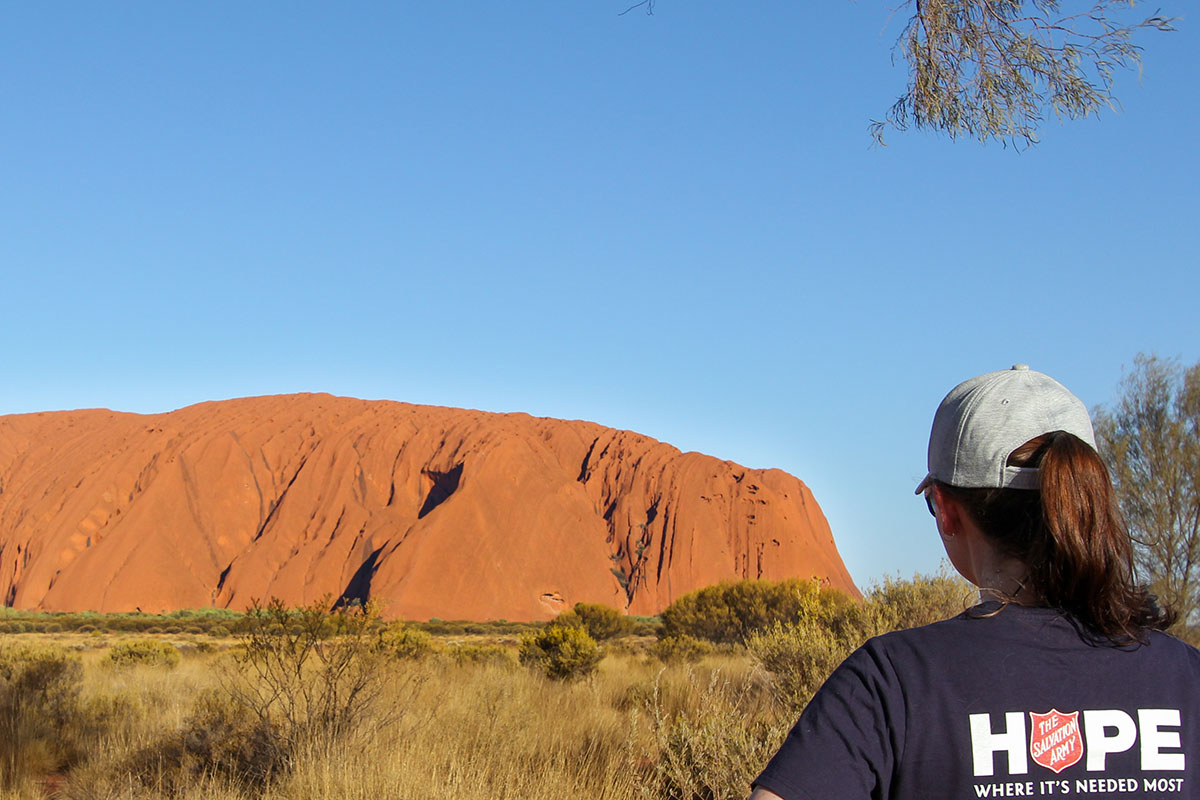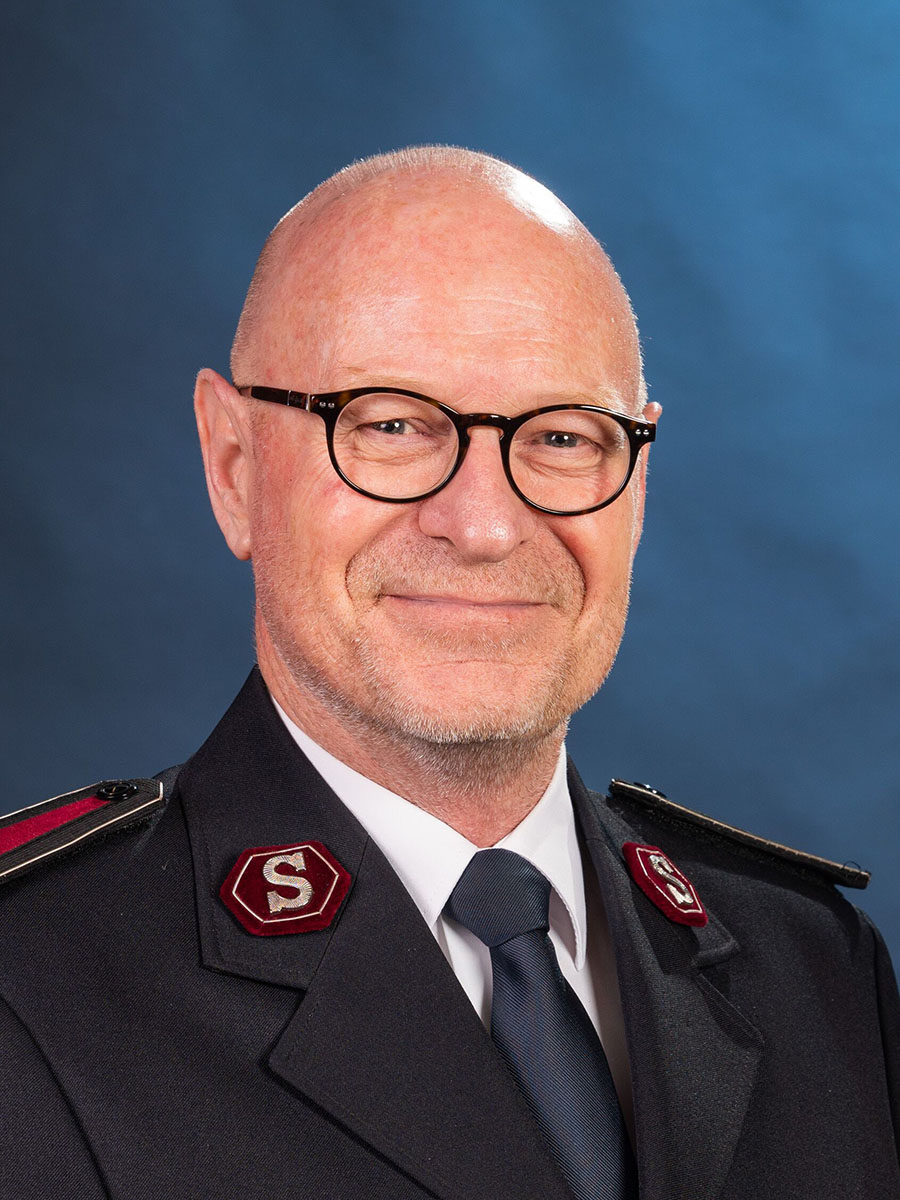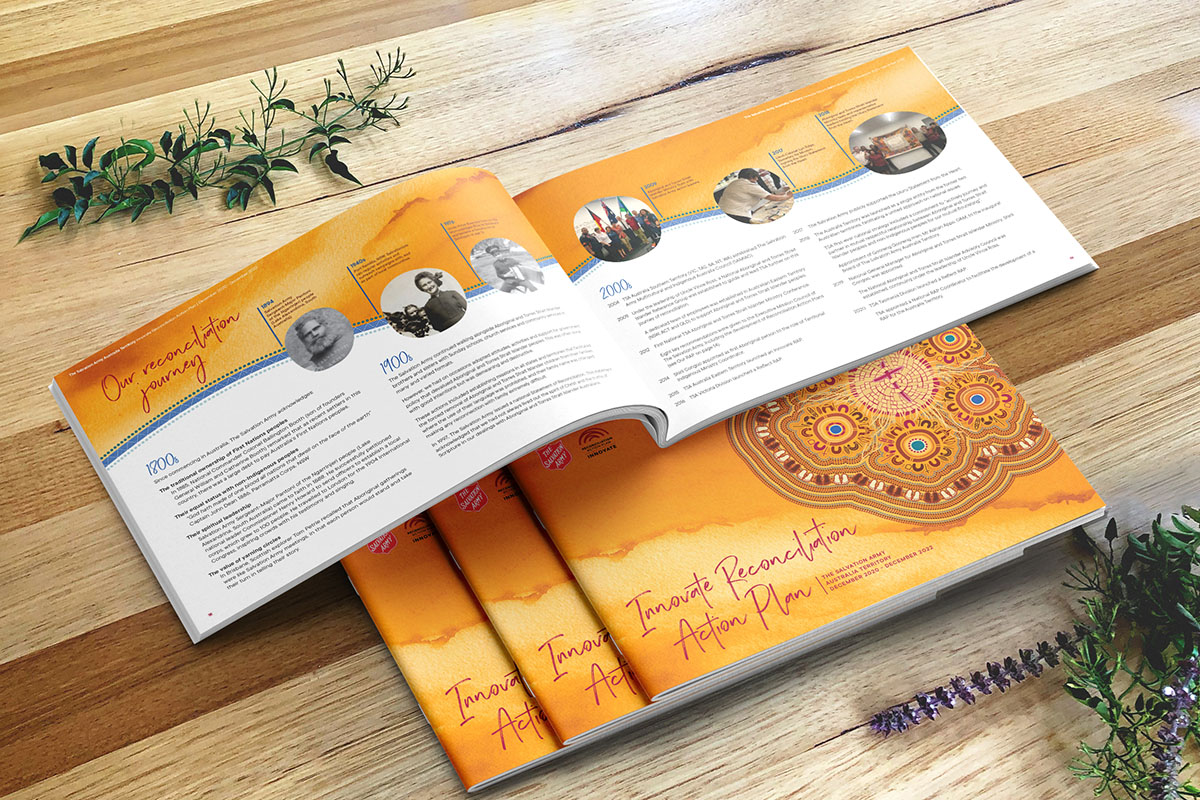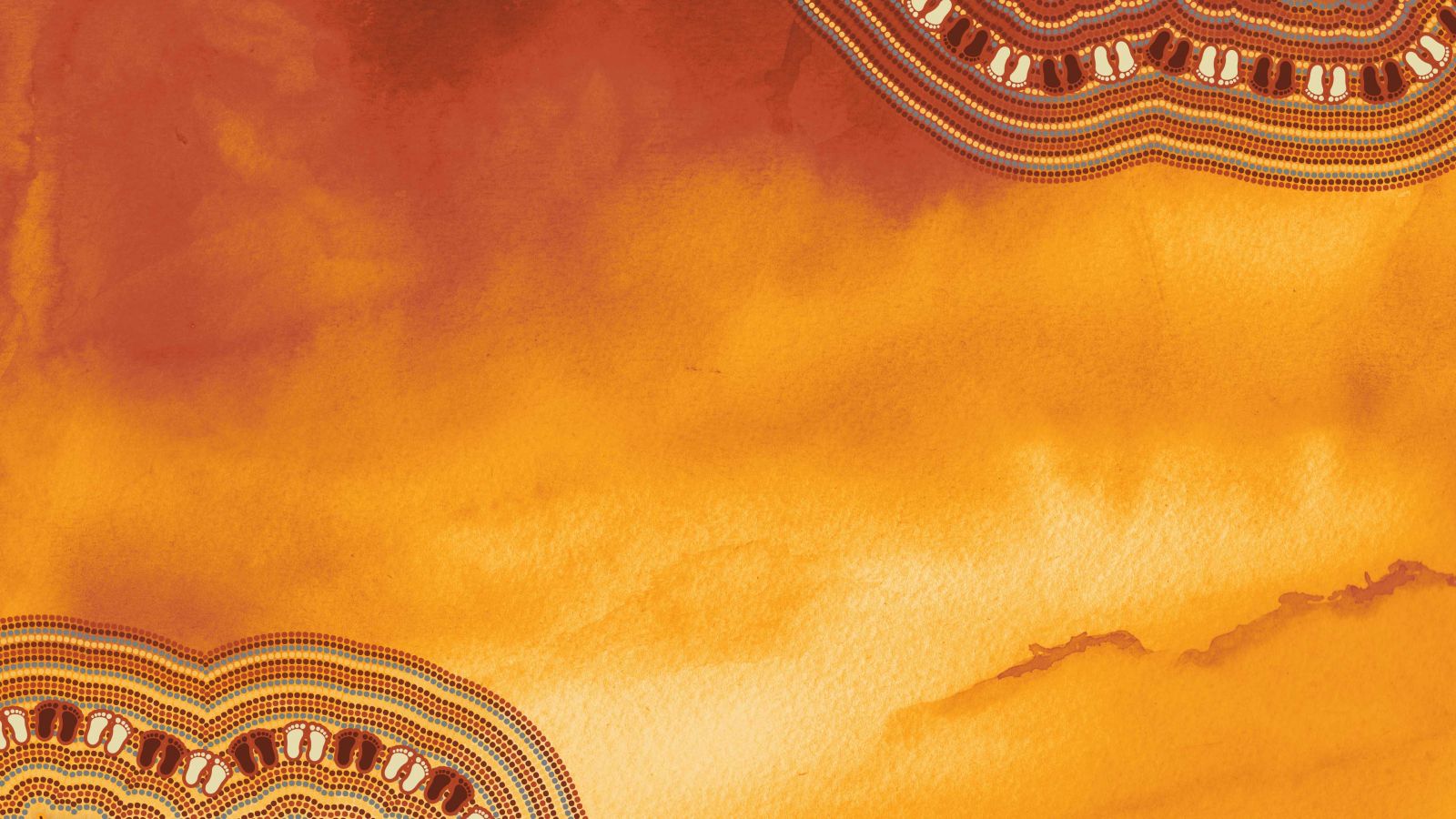Our commitment to reconciliation
Our vision for reconciliation is to be a faith movement committed to social justice, equity and freedom.
We aim to respect, value and acknowledge the unique cultures, spiritualities, histories and languages of the oldest surviving culture in the world, and to engage in a unified and positive relationship with Aboriginal and Torres Strait Islander peoples and their communities.
The development and implementation of our first national Salvation Army Reconciliation Action Plan (RAP) is key to driving reconciliation practices. Our Innovate Reconciliation Action Plan was launched on Thursday 3 December 2020.
Acknowledgement of Country

The Salvation Army acknowledges the Traditional Owners of the lands and waters throughout Australia.
We pay our respect to Elders and acknowledge their continuing relationship to this land and the ongoing living cultures of Aboriginal and Torres Strait Islander peoples across Australia. We also acknowledge future aspirations of all First Nations peoples.
Through respectful relationships we will work for the mutual flourishing of Indigenous and non-Indigenous Australians.
We commit ourselves in prayer and practice to this land of Australia and its people, seeking reconciliation, unity and equity.
Aboriginal and Torres Strait Islander Voice
In line with our Commitment to Reconciliation, and in response to the Uluru Statement from the Heart, The Salvation Army supports the call for the establishment of an Aboriginal and Torres Strait Islander Voice as a social justice response.
Through our network of more than 2000 services across the country, The Salvation Army sees first-hand the social injustices experienced by Aboriginal and Torres Strait Islander peoples.
A constitutionally protected Aboriginal and Torres Strait Islander Voice is an important first step in bringing about positive change to one of the most disadvantaged sections of our community.
We recognise there are diverse opinions and perspectives around the Voice. Support is available if you are experiencing trauma, hardship or discrimination due to the national debate.
If you or someone you know needs urgent support, you can contact these services:
In an emergency call triple zero 000
Beyond Blue 1300 22 4636
Lifeline 13 11 14
13YARN 13 92 76
1800 Respect 1800 737 732
Salvation Army leadership endorses the Innovate Reconciliation Action Plan
Australia’s Territorial Commander and Chair of the Board encourages us all to play our part in the process of reconciliation.
The Salvation Army Australia Territory has a long history working with and alongside Aboriginal and Torres Strait Islander peoples. We are totally committed to a journey of reconciliation.
The development of the Australia Territory’s first Reconciliation Action Plan has been an important step. However, we fully recognise that our collective actions must clearly demonstrate our strategic plans and policies by developing relationships of mutual respect and maintaining a commitment to reconciliation, truth and accountability with Aboriginal and Torres Strait Islander peoples.
The Salvation Army understands that reconciliation is an ongoing process that acknowledges Aboriginal and Torres Strait Islander peoples, reframes our current relationships and works towards a future based on dignity and trust.
We encourage all leaders to reach out to local Aboriginal and Torres Strait Islander communities to open pathways for dialogue. Each of us has a part to play in this important process of reconciliation.
 The Salvation Army’s goal is to arrive at a place where Aboriginal and Torres Strait Islander Australians, their cultures, customs and spiritualities, are heard, valued and acknowledged; and for our nation to move to a place of healing, peace and unity.
The Salvation Army’s goal is to arrive at a place where Aboriginal and Torres Strait Islander Australians, their cultures, customs and spiritualities, are heard, valued and acknowledged; and for our nation to move to a place of healing, peace and unity.
It is important to acknowledge and thank those involved in the consultative process of our Reconciliation Action Plan. It has been a process of learning and understanding for all those who have participated.
Together we seek God’s direction and blessing as we move forward in reconciliation, relationship building and engagement.
Commissioner Robert Donaldson
Territorial Commander and Chair of the Board
Australia Territory
What is the Innovate Reconciliation Action Plan?
A Reconciliation Action Plan (RAP) is an organisation’s structured approach to advance reconciliation. The Salvation Army’s RAP is a commitment to our engagement with Aboriginal and Torres Strait Islander peoples and our reconciliation initiatives.
There are four different types of RAPs that an organisation can develop:
- Reflect
- Innovate
- Stretch
- Elevate
The Salvation Army has chosen to implement an Innovate RAP. According to Reconciliation Australia, an Innovate RAP involves commitments that “allow your organisation to be aspirational and innovative”. It focuses on empowering Aboriginal and Torres Strait Islander peoples, developing strong relationships, and engaging staff and stakeholders in reconciliation.
More than 1000 Salvation Army personnel and community members engaged in about 100 yarning circles to identify key themes and issues for the Innovate Reconciliation Action Plan. The outcomes of those conversations formed the basis of the commitments made in the RAP. The RAP outlines timelines, activities and responsible personnel to keep The Salvation Army focused on its commitment to reconciliation.
The Salvation Army has also developed an accompanying resource called the Walk Alongside Church Toolkit to support our churches with adopting the action steps in the RAP.
Artwork depicts our strength, truth and journey
Art is an important form of storytelling for Aboriginal and Torres Strait Islander peoples. In recognition of this, a piece of artwork was designed to represent The Salvation Army’s journey of reconciliation. Titled “Our Strength, Our Truth, Our Journey”, the artwork engages our past, our present and our vision for the future.
A series of yarning circles held with Salvation Army staff and volunteers identified important themes and messages for reconciliation, which were to be expressed in the artwork. Under the leadership of Shirli Congoo, this significant piece of art for the Innovate Reconciliation Action Plan was brought to life by Salvation Army artists Sue Hodges, Tanita Paige, Emma Park and Terrence Whyte in the spirit of collaboration and reconciliation.
Reconciliation Action Plans

The Salvation Army has previously launched three Reconciliation Action Plans in various states and territories.
- 2020–2022 Innovate Reconciliation Action Plan - The Salvation Army Australia | featuring the artwork “Our Strength, Our Truth, Our Journey” by Sue Hodges, Tanita Paige, Emma Park and Terrence Whyte
- 2020–2021 Reflect Reconciliation Action Plan - Tasmania Division | featuring the artwork “Unfinished Business” by Allan Mansell
- 2017–2018 Reflect Reconciliation Action Plan - Victoria Division | featuring the artwork “Gum Leaves” by Ngarra Katye Murray
- 2015–2017 Innovate Reconciliation Action Plan - (former) Australia Eastern Territory, comprising NSW, Queensland, ACT | featuring the artwork “Reconciliation” by Cindy Alsop
